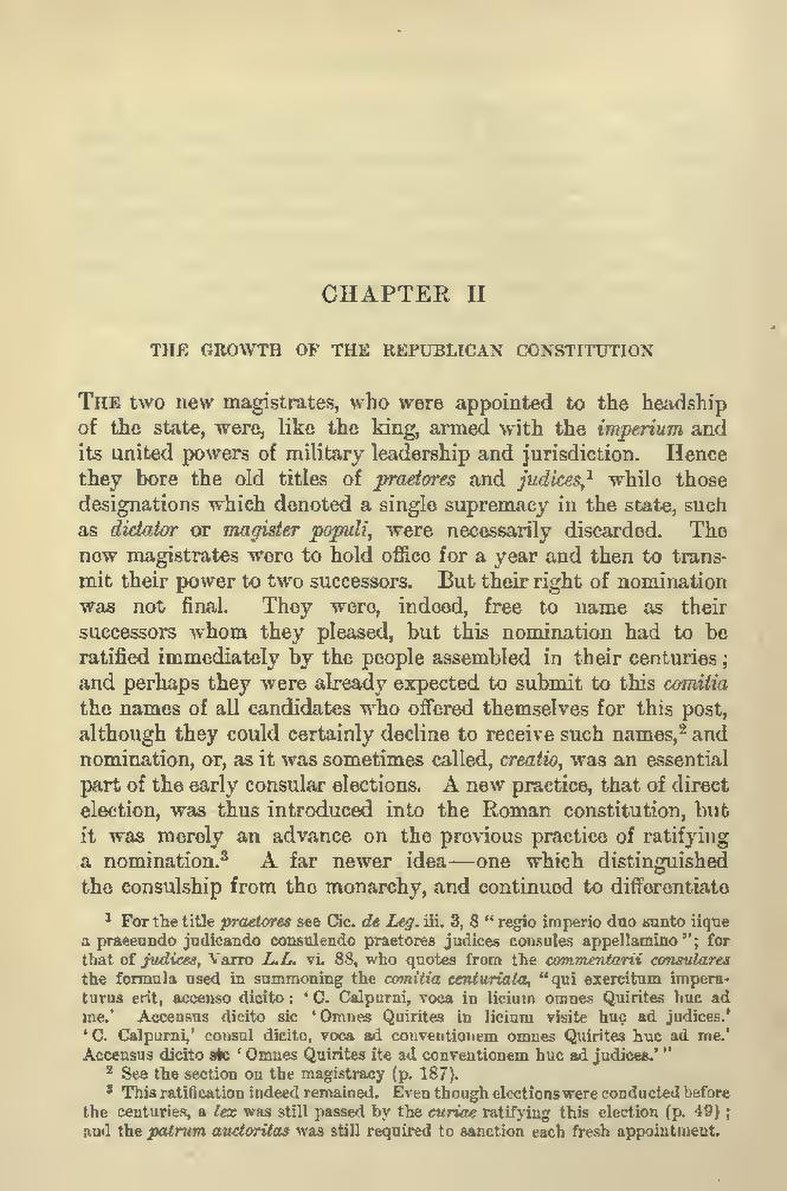CHAPTER II
THE GROWTH OF THE REPUBLICAN CONSTITUTION
The two new magistrates, who were appointed to the headship
of the state, were, like the king, armed with the imperium and
its united powers of military leadership and jurisdiction. Hence
they bore the old titles of praetores and judices,[1] while those
designations which denoted a single supremacy in the state, such
as dictator or magister populi, were necessarily discarded. The
new magistrates were to hold office for a year and then to transmit
their power to two successors. But their right of nomination
was not final. They were, indeed, free to name as their
successors whom they pleased, but this nomination had to be
ratified immediately by the people assembled in their centuries;
and perhaps they were already expected to submit to this comitia
the names of all candidates who offered themselves for this post,
although they could certainly decline to receive such names,[2] and
nomination, or, as it was sometimes called, creatio, was an essential
part of the early consular elections. A new practice, that of direct
election, was thus introduced into the Roman constitution, but
it was merely an advance on the previous practice of ratifying
a nomination.[3] A far newer idea—one which distinguished
the consulship from the monarchy, and continued to differentiate
- ↑ For the title praetores see Cic. de Leg. iii. 3, 8 "regio imperio duo sunto iique a praeeundo judicando consulendo praetores judices consules appellamino"; for that of judices, Varro L.L. vi. 88, who quotes from the commentarii consulares the formula used in summoning the comitia centuriata, "qui exercitum imperaturus erit, accenso dicito: 'C. Calpurni, voca in licium omnes Quirites huc ad me.' Accensus dicito sic 'Omnes Quirites in licium visite huc ad judices.' 'C. Calpurni,' consul dicito, voca ad conventionem omnes Quirites huc ad me.' Accensus dicito sic 'Omnes Quirites ite ad conventionem huc ad judices.'"
- ↑ See the section on the magistracy (p. 187).
- ↑ This ratification indeed remained. Even though elections were conducted before the centuries, a lex was still passed by the curiae ratifying this election (p. 49); and the patrum auctoritas was still required to sanction each fresh appointment.
